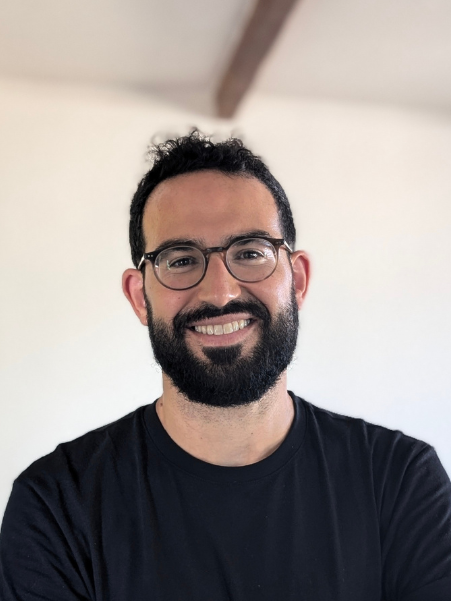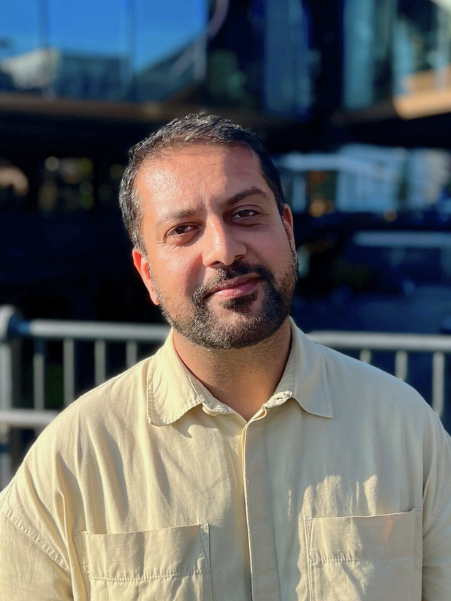-
Trustee Spotlight: Anthony Tomei
October 2024
October 17, 2024
Anthony has been chair of the Bonnart Trust since 2019. He was director of the Nuffield Foundation from 1995 to 2019. After retiring from the Foundation he took on a number of charity roles, including trustee of the Bell Foundation and of the Pensions Policy Institute (a pensions think tank). He was Vice Chair of the Royal Society’s “Mathematical Futures Programme”, which has recently published its Final report, on a new approach to Mathematical and Data Education. He is a visiting Professor in the department of Education at King’s College, London. He was awarded the CBE in 2013, for services to education.
"Hello, I'm Anthony Tomei, I'm Chair of The Bonnart Trust. I've been chair for about four or five years now. I think the thing I'm probably most proud of is that Freddy set up the Trust with two big ideas behind it. One was to address tolerance or intolerance and its causes, and the other was to support research, with a particular interest in research that's going to be useful, that's to say research that's going to make a difference.
Now, both of these are things which are dear to me, but we've added, I think over the last few years, we've added a third strand, which is about trying to create a community scholars. So we've been going just over 20 years, we've funded just over 40 scholars, and they're all intelligent, like minded people. And so the idea of bringing them together so that they can support each other, help each other, I think is something that we've been doing over the last five years, I think it's growing, I think it's working. If it continues, I think that is, that will be an important long term structure for the, for the Trust as it goes into its next 25 years." -
Staff Spotlight: Kerry-Ann Francis
October 2024
October 17, 2024
Kerry was born in Jamaica, raised in the Bronx and has lived in London for 15 years. She has 20+ years experience in sales, business development, marketing, communications and operations. Most importantly, anything she does must have a positive impact, micro or macro level, on people, planet and this thing called life. She is also a Mom, karaoke queen, school Governor and Zumba enthusiast.
Can you describe your role at the Bonnart Trust and share what you find most rewarding or fulfilling about working there?
"My role at the Bonnart Trust is really to provide support to the trustees and to our scholars and to help the Trust to be as efficient and effective as possible. I started working with the Trust back in 2019 and I have always been proud of the work that the Trust does in enabling our Master's and our PhD scholars to really support them in the research and to follow them in their journeys post research and post Birkbeck.
I find the most rewarding and fulfilling thing about my role, which spans administration, operations, governance and communications, is just to really see all the interesting topics that our Master's and PhD scholars delve into. They all fall within areas that I'm very passionate about, spanning equity, diversity and inclusion, such interesting topics about communities and about movements that I find quite thought provoking and quite pertinent to the way in which the world operates. And yeah, I find that really rewarding and fulfilling, and I'm proud to be able to contribute in any way to the running of such an amazing organisation." -
New Scholar Spotlight: Eliaou Balouka, PhD Student
October 2024
October 17, 2024

October 2024 Newsletter
Eliaou is a PhD Student in Psychosocial Studies at Birkbeck University. His PhD engages with Jewish-Muslim histories of minoritization in northern Africa and in the European urban diaspora outside and beyond the question of Israel-Palestine. It provides important scholarship by engaging with this long indigenous history and its rupture in modernity. It will highlight the legacy of little-known histories of judeo-muslim symbiosis and minority diversity in southern Algeria.
The project gives voice to populations whose histories have not been heard and analyses the traumatic processes of exile among traditionalist communities and its effects across multiple generations. In terms of results, the project will constitute a unique collection of oral archives spanning three generations, giving a voice to two of Algeria's minorities: the Jewish population and the Ibadite Muslims of the Mzab.
After studying for three years at a Talmudic school in al-Quds/Jerusalem, Eliaou obtained a master's degree in clinical psychology, psychopathology and psychoanalysis at the University of Strasbourg, France and did a clinical specialisation in peer-support at Université Paris 5.
Eliaou worked as a clinical psychologist for 5 years, drawing on his profession to develop a research project at the articulation of psychosocial aspects at stake in traditionalist religious communities and transgenerational effects of exile/migration. -
New Scholar Spotlight: Luke Muschialli, Master's Student
October 2024
October 17, 2024

Luke Muschialli (he/him) is an epidemiologist, public health researcher and advocate in sexual and reproductive health and LGBTQIA+ health equity. Luke began his education at University College London, obtaining a preclinical degree in Medical Sciences with Mathematics, Computer Science and Medicine, before diverting from clinical medical training to public health, obtaining an MPhil in Global Health from the University of Cambridge.
Luke is a passionate advocate for health equity, particularly among LGBTQIA+ populations and specifically transgender populations, and has advocated for such initiatives on the national level, through organisations such as the NHS Youth Forum, and internationally at the World Health Organisation. Luke is looking forward to continuing this commitment to transgender health equity through his time at Birkbeck an MA in Sociology, generously supported by the Bonnart Trust. -
New Scholar Spotlight: Rizwan Hussain, Master's Student
October 2024
October 17, 2024

I’m excited to begin my MA in Culture, Diaspora, and Ethnicity at Birkbeck University (2024-2026), as it connects with my ongoing commitment to exploring the role of people of colour and self-organising structures in trade unions while fostering multi-faith solidarity through organised labour. This is particularly special for me, as I’m returning to formal education after many years.
Currently, I work at the Trades Union Congress (TUC) as the Anti-Racism Officer. I led the most ambitious programme: the TUC Anti-Racism Taskforce which reviewed the trade union movement's progress on racial justice and equality. This two-year programme, completed in 2022, set the groundwork for ongoing work in the movement. My focus now is on implementing the Taskforce’s recommendations and advancing race equality, migrant justice, and anti-fascism by working closely with TUC-affiliated trade unions.
Before that, I worked on Islington Council's Listen Up project, which included initiatives like Young Muslim Voices, empowering young people of colour to address socio-political issues and advocate for change at a local level. In 2011, I founded Jawaab, an organisation building the power and voice of young Muslims in tackling Islamophobia, by providing leadership development and exploring - through research - how structural Islamophobia affects youth culture and identity in Britain.
The trust can be reached by email on kerryann@bonnart.org
Please note that The Bonnart Trust and trustees do not consider direct applications.
The Trust is a registered UK Charity and is governed by five volunteer Trustees and an administrator.
Copyright The Bonnart Trust (Frederick Bonnart-Braunthal Trust). UK Registered Charity Number 1094967